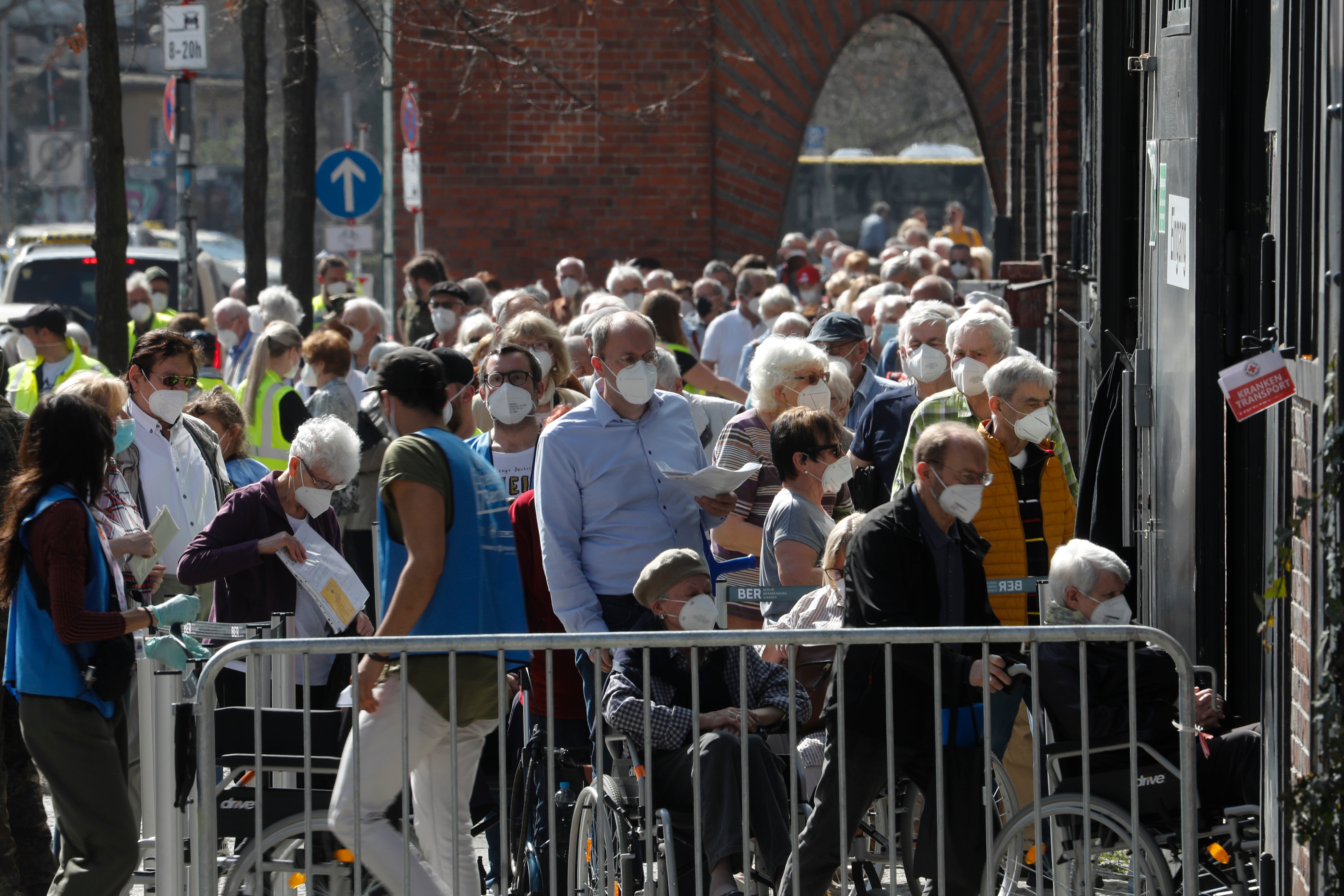Merkel: 'A quiet Easter' needed to counter rising infections
German Chancellor Angela Merkel has called on citizens to help ease the strain on nurses and doctors caring for the rising number of COVID-19 patients by respecting pandemic rules over Easter

Your support helps us to tell the story
From reproductive rights to climate change to Big Tech, The Independent is on the ground when the story is developing. Whether it's investigating the financials of Elon Musk's pro-Trump PAC or producing our latest documentary, 'The A Word', which shines a light on the American women fighting for reproductive rights, we know how important it is to parse out the facts from the messaging.
At such a critical moment in US history, we need reporters on the ground. Your donation allows us to keep sending journalists to speak to both sides of the story.
The Independent is trusted by Americans across the entire political spectrum. And unlike many other quality news outlets, we choose not to lock Americans out of our reporting and analysis with paywalls. We believe quality journalism should be available to everyone, paid for by those who can afford it.
Your support makes all the difference.German Chancellor Angela Merkel asked citizens Thursday to consider the strain that nurses and doctors are under as they care for a rising number of COVID-19 patients and help them by respecting social distancing and other rules over Easter.
Germany's disease control agency reported 24,300 newly confirmed cases in the past day, and 201 deaths. The head of the Robert Koch Institute has warned that the country is seeing a third surge in infections fueled by more contagious virus variants that have come to dominate the outbreak in Germany.
“There needs to be a quiet Easter festival,” Merkel said in a video address. “I urgently ask you to refrain from all non-urgent travel (and) that we all consistently follow the rules.”
Germany has recorded more than 2.8 million COVID-19 cases and 76,543 deaths since the start of the outbreak, fewer than most other large European countries. But there has been frustration about the slow pace of its vaccination program, with only about 11.6% of the population having received at least one shot by Wednesday.
In contrast, Britain has given one vaccine shot to 46% of its people.
Merkel said she understood the disappointment felt by many Germans that they face celebrating another Easter without friends or family, but insisted that the vaccine campaign will pick up this month.
Health Minister Jens Spahn said routine vaccinations will begin in doctors' practices on Tuesday, with 35,000 GPs scheduled to receive 940,000 vaccine doses next week. He said that will rise to 3 million a week by the end of April. Until now, shots have mainly been administered in special vaccine centers and by mobile teams visiting nursing homes.
Germany expects to receive about 40 million vaccine doses during the second quarter. That includes millions of doses of the AstraZeneca shot, which Germany this week said should only routinely be given to people 60 and over amid concerns about possible rare blood clots.
German President Frank-Walter Steinmeier who is 65, on Thursday chose to get inoculated with the AstraZeneca vaccine made by the British-Swedish company, which both the European Medicines Agency and the World Health Organization have said is safe.
Merkel, who is 66, says she would be prepared to take the AstraZeneca vaccine. But it isn’t yet clear whether and when that might happen.
___
Follow AP’s pandemic coverage at https://apnews.com/hub/coronavirus-pandemic,https://apnews.com/hub/coronavirus-vaccine and https://apnews.com/UnderstandingtheOutbreak